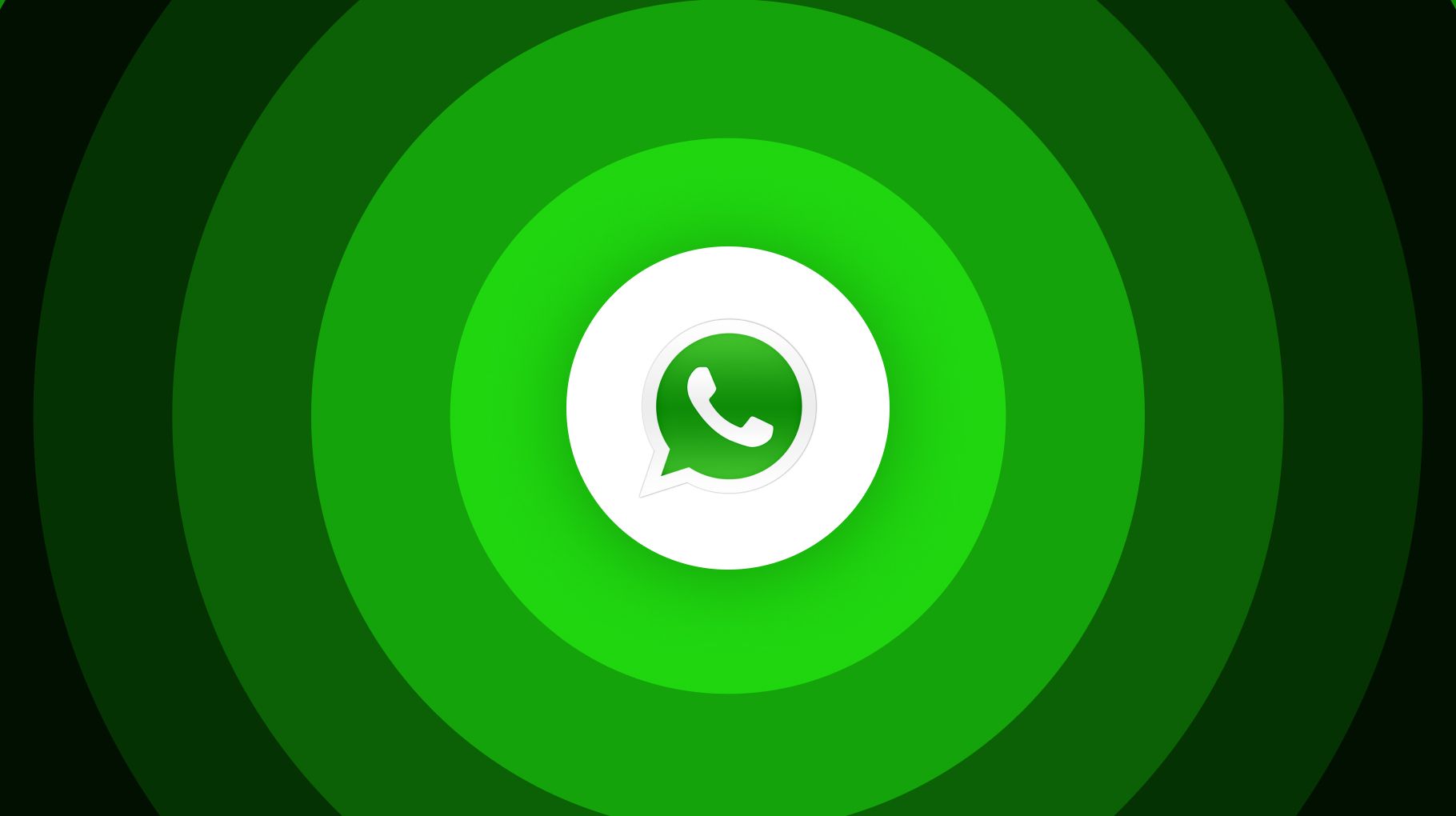WhatsApp Revenue and Growth Statistics (2024)

WhatsApp’s latest Key facts
- In 2022, the total number of WhatsApp users worldwide was estimated to be more than 3.25 billion users
- As of 2022, WhatsApp has an average of more than 2.44 billion monthly active users
- In 2021, WhatsApp was used an average of 18.6 hours per month by users around the world, or 37 minutes per day
- In 2022, WhatsApp users exchanged an estimated 120 billion messages
- In 2022, WhatsApp have more than 5.7 billion app downloads
- WhatsApp’s Android app has been downloaded more than 5 billion times as of 2022, while the iOS version had been downloaded more than 500 million times
- With 2.44 billion users in 2022, a similar calculation would value WhatsApp at $102 billion
- The revenue for WhatsApp in 2021 was $790 million
- WhatsApp currently has 1,883 employees
Overview about WhatsApp
Source: Crunchbase
How many WhatsApp users are there? (Worldwide)
In 2022, the total number of WhatsApp users worldwide was estimated to be 3.25 billion, an 8.3% increase from the number of WhatsApp users in 2021, which was 3 billion.
%20.jpg)
Source: Statista
What % of the world’s population uses WhatsApp?
More than 40% of the global population use WhatsApp for instant messaging in 2022.

Source: UN, World Bank, Statista
WhatsApp Monthly Active Users
As of 2022, WhatsApp has an average of more than 2.44 billion monthly active users.

Source: Statista 1, Statista 2, Analysis Group, Business Insider, Facebook, Messenger People, Statista 3
WhatsApp user/market share in each country
NOTE: The figures below are the % of users who are using a messaging app.
Brazil had the highest percentage of WhatsApp users (98%), with more than 98% of the country’s messaging-app-users using WhatsApp as their first-rated messaging app, followed by India and Italy, each with around 97%, as the top platform adopters in 2022.

Source: Statista
WhatsApp users by devices used
Based on a random sampling of both the kind of devices used to access WhatsApp and the countries where it is used. There are sporadic signs that WhatsApp users prefer to access the messaging service more from their desktop computers.

Source: SEMrush
What is the average time spent on WhatsApp by users?
The average monthly time spent using WhatsApp by users worldwide in 2021 was 18.6 hours, down from 19.4 hours per user in 2020.
This translates to an average daily usage of 37 minutes for WhatsApp users in 2021.

Source: Statista
How many messages are exchanged on WhatsApp every day? (Global WhatsApp Message Volume Per Day)
In 2022, WhatsApp users exchanged an estimated 120 billion messages.
.jpg)
Source: Statista 1, Statista 2, Statista 3
WhatsApp users demographics
WhatsApp users by gender
Male users of WhatsApp make up 53.86% of all users while female users make up 46.14%

Source: Similar Web
WhatsApp users by age
The majority of WhatsApp users are between the ages of 25 and 34.

Source: Similar Web
How many WhatsApp Downloads are there?
In 2022, WhatsApp have more than 5.7 billion app downloads.

Source: Statista
How many mobile and Desktop WhatsApp app downloads are there?
Research suggests that 59% of WhatsApp’s traffic comes from desktop, while 41% comes from mobile.

Source: SEMrush
How many Operating Systems does WhatsApp support?
WhatsApp currently, supports and recommends using the following devices with OS such as:
- Android running OS 4.1 and newer
- iPhone running iOS 12 and newer
- KaiOS 2.5.0 and newer, including JioPhone and JioPhone 2
Source: WhatsApp
How many Android and iOS downloads are there?
WhatsApp’s Android app has been downloaded more than 5 billion times as of 2022, while the iOS version had been downloaded more than 500 million times.

Source: Play Google, Apps Apple
How much is WhatsApp worth? (Valuation)
According to experts, each WhatsApp user is worth approximately $44.
A similar calculation would value WhatsApp at $105.6 billion with 2.4 billion active monetizable users in 2022.
.jpg)
Source: Zoko, Statista 1, Statista 2, Analysis Group, Business Insider, Facebook, Messenger People, Statista 3, Facebook
WhatsApp Revenue
The expected revenue for WhatsApp in 2021 was $790 million.

Sources: Forbes
WhatsApp Average Revenue Per User (ARPU)
As of 2021, the average revenue per user on WhatsApp was $3.80.
WhatsApp Funding
WhatsApp has raised a total of $60.3 million in funding over 3 rounds. Their latest funding was raised on Jul 1, 2013, from a Series B round.
Source: CrunchBase
WhatsApp Investors
Sequoia Capital funds WhatsApp.
Source: CrunchBase
How does WhatsApp make money? (WhatsApp business model)
WhatsApp began as a ‘freemium’ service, allowing users to send messages for free for the first year and then renew for an annual fee of $0.99.
They have abandoned this business model in favor of in-app advertising. They make money instead through WhatsApp for Business and WhatsApp Pay.
It charges businesses for delayed responses. This means that businesses can respond to user messages for free for the first 24 hours, but must pay a fee for each message sent after that. The fee is fixed but varies depending on the country.
Source: Seeking Alpha, FEEDOUGH
What is WhatsApp’s market share in the mobile messenger apps industry?
According to reports, WhatsApp owns more than 34% of the global mobile communication apps industry.

Source: Statista
Where is WhatsApp available?
WhatsApp is available and accessible from over 180 countries worldwide.
Source: WhatsApp
How many employees does WhatsApp have?
WhatsApp currently has 1,883 employees.

Source: Wired, Fast Company, Business Strategy Hub, LinkedIn
Where is the WhatsApp Head Office located?
WhatsApp’s head office is located in the United States, at 1601 Willow Rd, Menlo Park.
Source: Craft
What is WhatsApp Pay? (WhatsApp payment service)
WhatsApp Pay is a Unified Payments Interface (UPI) platform that allows for bank-to-bank transactions to be completed using a smartphone.
Simply put, it is a payment feature within chat that allows you to send and receive money from anyone on your contact list.
Are payments via WhatsApp safe?
Yes, WhatsApp Pay is secure, thanks to WhatsApp’s ability to maintain end-to-end encryption, which is used to protect users’ privacy.
As a result of this advanced technology, only the users who are conversing have access to the messages being exchanged. Because WhatsApp Pay uses the government’s UPI payment system, all payments made with it are secure.
How do I use WhatsApp Pay to get money?
To use the WhatsApp Pay service, you must first activate the feature using your bank information.
How much does WhatsApp charge for its payment service?
Users can send and request money to their contacts for free, but businesses must pay a 3.99% fee per received transaction.
Where is the WhatsApp Pay service available?
WhatsApp Payment features are only available in India, Brazil, and select users in the US for now.
WhatsApp Business Statistics
How many WhatsApp Business downloads are there?
As of June 2022, Indian businesses were the ones that downloaded WhatsApp Business the most, with almost 292 million downloads on Android and iOS devices.
Around 220.5 million WhatsApp Business downloads were made by users worldwide in 2021, up 25.3 percent from the prior year.
Users can communicate instantaneously with WhatsApp Business’s customer care agents or small business owners thanks to the platform’s 2018 introduction.

Source: Statista 1, Statista 2
Spending by companies using the WhatsApp business app
According to estimates, medium and big businesses throughout the globe spent about 38.7 million dollars on WhatsApp Business in 2019.
By 2024, it is anticipated that 3.6 billion US dollars would have been spent overall on the popular instant messaging app’s commercial platform.
The WhatsApp Business app was downloaded by 220.5 million people worldwide in 2021.

Source: Statista
What is WhatsApp business average revenue per user (ARPU) by region?
The average revenue per user (ARPU) for WhatsApp Business was predicted to be roughly 0.24 dollars globally in 2021.
According to estimates, Europe had the highest ARPU for WhatsApp businesses globally, earning 1.21 dollars per user on the service. Worldwide revenue from WhatsApp Business is projected to have reached roughly 1.2 billion dollars in 2021, with Asia and Latin American regions accounting for the greatest revenue shares.
%20by%20region.jpg)
Source: Statista
Who owns WhatsApp? (WhatsApp founders)
WhatsApp was founded by Jan Koum and Brian Acton. WhatsApp became a part of Facebook in 2014, but it remains a separate app with a single focus on developing a messaging service that works quickly and reliably anywhere in the world.
Source: WhatsApp
Whatsapp Founders: Net worth
- Jan Koum
Jan Koum cofounded WhatsApp, the world’s largest mobile messaging service, in 2009, before Facebook purchased the company for $22 billion in cash and stock in 2014.
He resigned as WhatsApp’s CEO in April 2018 and announced his intention to leave Facebook’s board of directors as well.
Koum worked at Yahoo for nearly nine years before leaving to found WhatsApp. Koum has given $1.15 billion in Facebook stock to charities, including his Koum Family Foundation.

Below is the net worth history of Jan Koum.
Source: Forbes
- Brian Acton
Brian Acton, a computer engineer, cofounded WhatsApp with Jan Koum in 2007; the two met while working at Yahoo.
In 2014, the duo sold WhatsApp to Facebook for $22 billion in cash and stock. Acton left WhatsApp at the end of 2017, having received approximately $3 billion for his stake in the company.
In 180 countries, the mobile messaging app has over 1 billion users. Acton and his wife, Tegan, have also founded three other philanthropic entities. In February 2018, he committed $50 million to Signal Foundation, the nonprofit behind the Signal mobile app focused on preserving private communication.
In total, the duo has invested more than $1 billion in charitable organizations.
.jpg)
Source: Forbes
WhatsApp Traffic Analysis
WhatsApp Traffic Sources
Direct traffic makes up the majority of WhatsApp’s traffic (84.37%), while search traffic makes up the second-largest portion (9.53%).

Source: Similar Web
WhatsApp Social Media Traffic Sources
YouTube is the source of the majority of WhatsApp’s social media traffic, followed by Facebook and Instagram.
Source: Similar Web
WhatsApp FAQ
Can someone read your messages on WhatsApp?
WhatsApp said in an official blog post that Facebook cannot access WhatsApp content because of its end-to-end encryption: “When using the most recent version of WhatsApp, only you and the individuals you are messaging are able to access the messages because they are encrypted by default.
Want more of this, for free?
About the author
Ch David is the co-founder of SignHouse. David is here to help the product development team expand the capabilities of ultimate eSignature maker for all your needs. Join David and the SignHouse team in stepping up electronic signatures!









